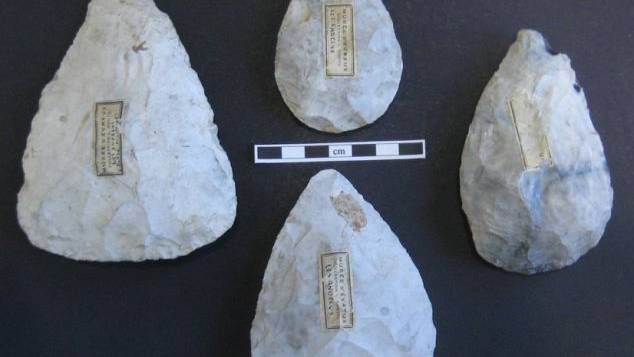Neanderthals had ’distinct cultures’: Ancient tool types show knowledge was passed down generations
Source: dailymail.co.uk
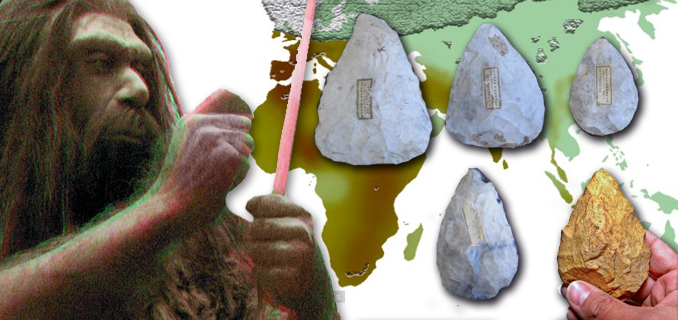
Neanderthals were more culturally complex than previously thought, according to scientists who have studied prehistoric handaxes.
The design of handaxes, the multipurpose tool used by Neanderthals primarily to prepare food, were passed down the generations and demonstrate social learning in different groups living in what is now modern Europe.
Two cultural traditions existed among Neanderthals living in northern Europe between 115,000 to 35,000 years ago, the researchers said.
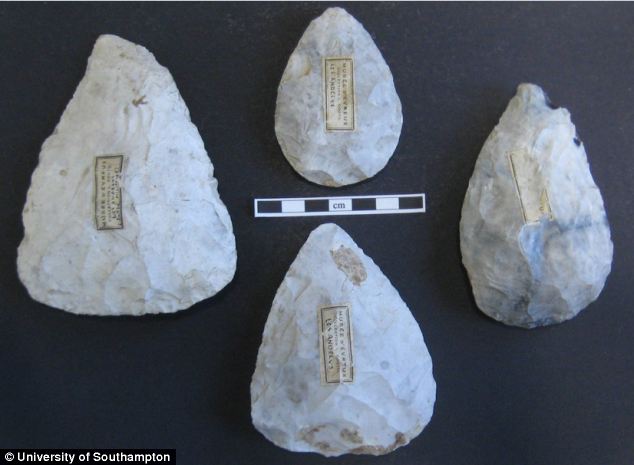
Dr Karen Ruebens from the Centre for the Archaeology of Human Origins at the University of Southampton examined the design of 1,300 stone tools originating from 80 Neanderthal sites in five European countries; France, Germany, Belgium, Britain and the Netherlands.
Dr Ruebens’ investigations uncovered new evidence that two separate handaxe traditions or designs existed; one in a region now spanning south-western France and Britain and the other in Germany and further to the East.
She also found an area covering modern day Belgium and the Netherlands that demonstrates a transition between the two.
She told MailOnline the handaxes were used for similar functions - to butcher animals, woodworking and hideworking - in both regions she studied and described them as ’multifunctional tools’.
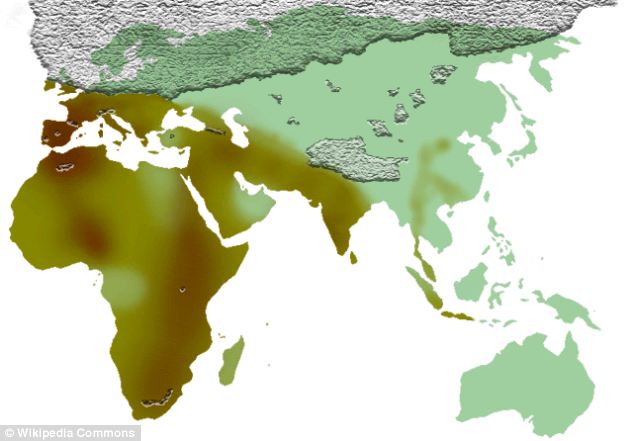
A map of the area where the hand axe cultures were spread out during the Middle Pleistocene. The study found the design of handaxes was passed down generations in different groups living in what is now modern Europe
Dr Ruebens said: ’In Germany and France there appears to be two separate handaxe traditions, with clear boundaries, indicating completely separate, independent developments.
’The transition zone in Belgium and Northern France indicates contact between the different groups of Neanderthals, which is generally difficult to identify but has been much talked about, especially in relation to later contacts with groups of modern humans.’
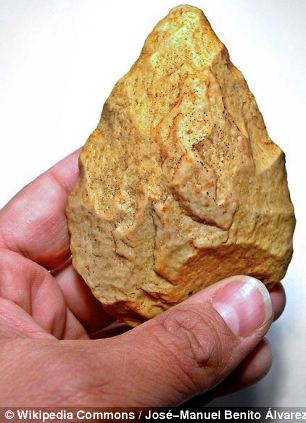 ’This area can be seen as a melting pot of ideas where mobile groups of Neanderthals, both from the eastern and western tradition, would pass by – influencing each other’s designs and leaving behind a more varied record of bifacial tools.’
’This area can be seen as a melting pot of ideas where mobile groups of Neanderthals, both from the eastern and western tradition, would pass by – influencing each other’s designs and leaving behind a more varied record of bifacial tools.’The University of Southampton research has revealed Neanderthals in the western region made symmetrical, triangular and heart-shaped handaxes, while during the same time period, in the eastern region, they produced asymmetrically shaped bifacial knives.
Dr Ruebens said: ’Distinct ways of making a handaxe were passed on from generation to generation and for long enough to become visible in the archaeological record.
’This indicates a strong mechanism of social learning within these two groups and says something about the stability and connectivity of the Neanderthal populations.
’Making stone tools was not merely an opportunistic task. A lot of time, effort and tradition were invested and these tools carry a certain amount of socio-cultural information, which does not contribute directly to their function.’
The study also said other factors previously thought to have determined the shape of handaxes, including the raw materials available to Neanderthals, the function of their sites or the repeated reuse and sharpening of tools, didn’t have an impact.
She told MailOnline the ’cultural pattern overrides the other factors’.
Dr Reubens said: ’There was a habit to make the handaxes in a certain way [in distinct groups] that was passed down generation to generation.
’It was a conscious decision to make them [the tools] in a certain way.’
She also said that there was ’no link’ between the different shaped tools being used for different tasks.
The various shaped handaxes are all thought to be multipurpose prehistoric tools.
Dr Reubens’ research, which was published in the Journal of Human Evolution, adds to an emerging archaeological perspective on Neanderthal regionality, which is a concept also identified in studies of their skeletal and genetic features.
Article from: dailymail.co.uk
Tune into Red Ice Radio:
Danny Vendramini - Hour 1 - Them & Us: Neanderthal Predation Theory
